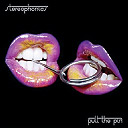Caroline Sullivan: Barry Manilow has cheered me up for years
I can’t remember a time when I didn’t love Barry Manilow – something most music journalists probably can’t say. If anything, he’s deeply reviled by most of my colleagues, which I can almost understand: he’s emollient and runs heavily to balladry, and there’s no grabby back-story beyond his changing his name from Pincus at the age of 13.
Yet he’s cheered me up for years. Much of that has to do with his music, obviously, but that’s not the whole of it. I do adore his remarkable run of 70s and 80s singles, nearly every one a masterclass in elegant restraint. With songs of that quality (for starters, see Weekend in New England, Mandy and Daybreak) he had no need for melismatic overstatement – his warm delivery was enough.
But the extra fillip, for me, is the streak of Jewish New York that runs through his work. As a lonely Manhattan-to-London transplant in the 1980s, I was comforted by his music because it reminded me of home – his passion for it, best heard on the brilliant Latinate New York City Rhythm, still gives me a boost even now. Having said that, I ration my Mani-listening these days – his songs are too precious to devour in big helpings.
Alexis Petridis: I have an undying, obsessive love of tacky 70s pop
I have a theory that the pop music you hear when you’re six or seven years old stays with you for the rest of your life, whether you want it to or not. Perhaps you can’t escape it because there’s something pure and primal about your music tastes at that age. You don’t like something because your peers like it, or because it’s perceived as cool, or because you think that liking it says something about you: all the societal pressures that are brought to bear on your tastes in your teens, subconsciously or otherwise. You just like it.
Certainly, that theory would explain my undying, obsessive love of tacky 70s pop, the stuff that was on the radio all the time when I was a little kid. I don’t mean glam or disco or Abba, which long ago escaped whatever taint of naffness they once had. I mean stuff no one in their right minds is going to re-evaluate. I mean Johnny Wakelin’s Muhammad Ali-themed 1976 novelty hit In Zaire, a record I like so much I sought out the album it came from: you could, frankly, sense the disbelief of the second-hand record dealer who sold it to me.
I mean the tatty Euro-disco of Penny McLean’s Lady Bump, with its baffling screamed chorus. I mean the records actor Paul Nicholas made during his mercifully brief pop career – among them Dancing With the Captain and the jaw-dropping Reggae Like It Used To Be – and I mean the oeuvre of grandma-friendly easy listening combo The New Seekers.
I make no artistic claims for this music whatsoever: I certainly don’t go around trying to convince people of the worth of, say, Meri Wilson’s Telephone Man, another novelty hit, this time with a plot line like a scene from a badly written porn film. I should be at a loss to explain why it shares space in my record collection with Can and Coil and Underground Resistance and Charles Mingus. But I’ve got my theory and I’m sticking to it.
Tom Usher: I put on Papa Roach’s Last Resort and unashamedly headbang
CUT MY LIFE INTO PIECES, THIS IS MY LAST RESORT. If you’re like me then upon hearing those words; which sound more like a frat boy’s hollered invitation to neck a Jäger Bomb and jump into a swimming pool naked than the suicidal cry for help which they are intended to be, then you will be able to rap/scream/wail the rest of the entire lyrics to Papa Roach’s breakout single Last Resort word for word, scream for scream.
This song, with its main riff that sound suspiciously like it was nicked from Iron Maiden’s Genghis Khan, and its “Deftones on protein shakes” singing from lead singer Jacoby Shaddix, with his name like a Dickensian cereal brand, should be terrible – and for all intents and purposes, it is. It’s bad, even for the genre of nu-metal, which is also, on the whole, Not Very Good.
But it isn’t. Not really. There’s something about its chest thumping honesty, which feels like listening to a muscular jock break down and confess to you that he secretly writes poetry as he sobs in the school changing rooms, that’s endearing. There is something about having Shaddix rap a dark and macabre set of lyrics, and rap them like he’s trying to do his best House of Pain impression rather than candidly ask of you if it “would be wrong or right, if he took his life tonight, because the chances are, that he might”, that epitomises what was in nu-metal, quite a confused but ultimately very fun genre.
For me, weaker strains of metal like this were what got me into bands such as Pantera, Slayer and Converge, and for that I’m eternally grateful for it. Also, if there is a better song to put on and just unashamedly headbang to after a long day of dealing with bollocks, I’m yet to hear it.
Tshepo Mokoena: Iggy Azalea was problematic, but she introduced me to Ariana Grande
There was a time, somewhere between 2012 and 2014, when we let our collective guard down. We let Iggy Azalea happen. Mock American accent and all, the Australian rapper picked up American Music awards, plus Grammy, Bet and Mobo nominations along the way. It was a confusing time.
All of which is to say that by the time pop singer Ariana Grande released her 2014 single Problem, featuring another borderline-minstrel-show rap by Iggy, I lapped it up. And now, even with the benefit of hindsight, I can do little else but say that the song – with its programmed horns and clear Max Martin/Shellback signature melody – slaps severely.
Problematic as Azalea may have been, she helped introduce me to Grande, whose mellifluous voice remains a force on tracks such as Into You and Dangerous Woman (seriously, her a cappella take on the latter is breathtaking). I know I’m a good 10 years above Grande’s core demographic, but she’s got me hooked. And that’s another reason to ruefully shake a fist in Azalea’s direction.
Michael Hann: Pat Benatar’s Best Shots is the best 99p I’ve ever spent
There’s one area of pop that remains critically unrehabilitated. It’s not that it’s derided, more that it’s ignored. It’s as if it never happened, despite the fact this music was the sound of dozens of hits, from some of the biggest artists in the world. It’s that point in the late 1970s and early 1980s when mainstream artists took notice of punk and new wave and sharpened up their acts. There’s just one album from this microgenre that has entered the canon, Fleetwood Mac’s Tusk, but that doesn’t really fit the bill, since Lindsey Buckingham didn’t sharpen up their act so much as deconstruct it entirely.
I’m thinking instead of artists such as The Romantics and Rick Springfield. I’m thinking of Billy Joel around the time of Glass Houses (can I be honest with you? It’s Still Rock’n’Roll to Me is one of my favourite ever singles). I’m thinking especially of Pat Benatar, whose early 80s singles are one of the great runs of pop, and almost entirely unappreciated these days. I’d go so far as to say that Pat Benatar’s Best Shots is the best 99p I’ve ever spent (thank you, Kentish Town Oxfam): Love Is a Battlefield! We Belong! Hit Me With Your Best Shot!
These are great, great songs, proof that when songwriters and musicians who really know what they’re doing take a look at the zeitgeist, they can be a lot more fun than the zeitgeist ever gets round to being. I suspect I’m not alone in my love for these songs; when I play one during a DJ set, the air is punched, the choruses are hollered. And then everyone goes home and never thinks about Pat Benatar ever again.











